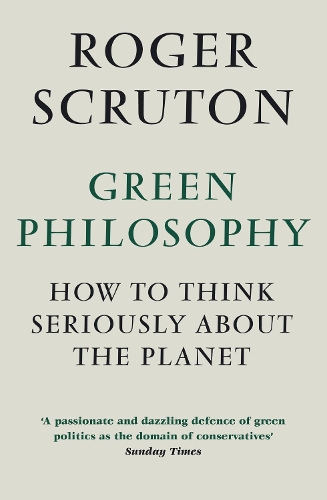
Green Philosophy: How to think seriously about the planet
(Paperback, Main)
Publishing Details
Green Philosophy: How to think seriously about the planet
By (Author) Roger Scruton
Atlantic Books
Atlantic Books
29th January 2013
1st January 2013
Main
United Kingdom
Classifications
General
Non Fiction
Environmentalist thought and ideology
179.1
Physical Properties
Paperback
464
Width 125mm, Height 35mm, Spine 200mm
420g
Description
The environment has long been the undisputed territory of the political Left, which has seen the principal threats to the earth as issuing from international capitalism, consumerism and the over-exploitation of natural resources. In Green Philosophy, Scruton argues that conservatism is far better suited to tackle environmental problems than either liberalism or socialism. He shows that rather than entrusting the environment to unwieldy NGOs and international committees, we must assume personal responsibility and foster local sovereignty. People must be empowered to take charge of their environment, to care for it as a home, and to affirm themselves through the kind of local associations that have been the traditional goal of conservative politics. Our common future is by no means assured, but as Roger Scruton clearly demonstrates in this important book, there is a path that we can take which could ensure the future safety of our planet and our species.
Reviews
A dazzling book -- Simon Jenkins * Sunday Times *
Beautifully written and ambitious in its scope... An immensely readable book and a valuable contribution to the debate over environmental politics. -- Caroline Lucas * Independent *
The Tories want the environmental agenda back and they have one of the best philosophers of our time leading the charge. -- Louise Gray * Daily Telegraph *
Author Bio
Roger Scruton is a writer and philosopher who has written on aesthetics, politics, music and architecture. He is Research Professor at the Institute for the Psychological Sciences in Washington and Oxford and is Resident Scholar at the American Enterprise Institute in Washington. His most recent books include A Dictionary of Political Thought; England: An Elegy; Death-Devoted Heart: Sex and the Sacred in Wagner's Tristan and Isolde; News from Somewhere: On Settling A Political Philosophy; Gentle Regrets and On Hunting.
